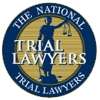News & Resources
Infections and Medical Malpractice
Hospitals are full of people needing treatment for a variety of ailments. They share the same facilities, rooms, and equipment, breathe the same air, and receive care from the same medical professionals. This can make hospitals and other healthcare facilities breeding ground for a whole host of infections which in turn can cause additional health problems, surgical and post-surgical complications, and further treatment.
When we think of car accidents caused by negligence, we usually think of another driver whose careless or reckless conduct led to the crash. Sometimes, however, a car wreck and the injuries that follow aren’t the fault of those we share the road with. Sometimes, the cause of an accident is the road itself.
How to Prove Fault in Distracted Driving Cases
As in any car accident injury lawsuit, a person seeking compensation for injuries suffered in a distracted driving accident must prove that the defendant’s negligence caused the accident and injuries. This means proving to a judge or jury that the driver was, in fact, distracted or looking at something other than the road ahead of them at the time of the collision. Fortunately, distracted driving by its very nature often comes with ample evidence to establish fault.
7 Common Delivery Issues That Lead to Birth Injuries
An expectant mother and her child can experience complications at any point during a pregnancy, but it is during labor and delivery when the dangers – and the potential for catastrophic errors by physicians and nurses – are the greatest. Indeed, not everything that can go wrong in a delivery room is the result of medical malpractice. However, when the medical professionals we entrust with the health and life of a child and a mother fail to use the judgment, make the decisions, and provide the care necessary to prevent harm to the mother and child, it can constitute medical malpractice.
Misdiagnosis of Alzheimer’s Disease
For those who have Alzheimer’s disease and the families who love them, the toll the illness takes on memory, cognitive functioning, and day-to-day life can be devastating, and only gets more difficult as the disease progresses. While there is no cure, early diagnosis and intervention can facilitate treatments and medication regimes that can slow the disease’s progress and improve quality of life.




















